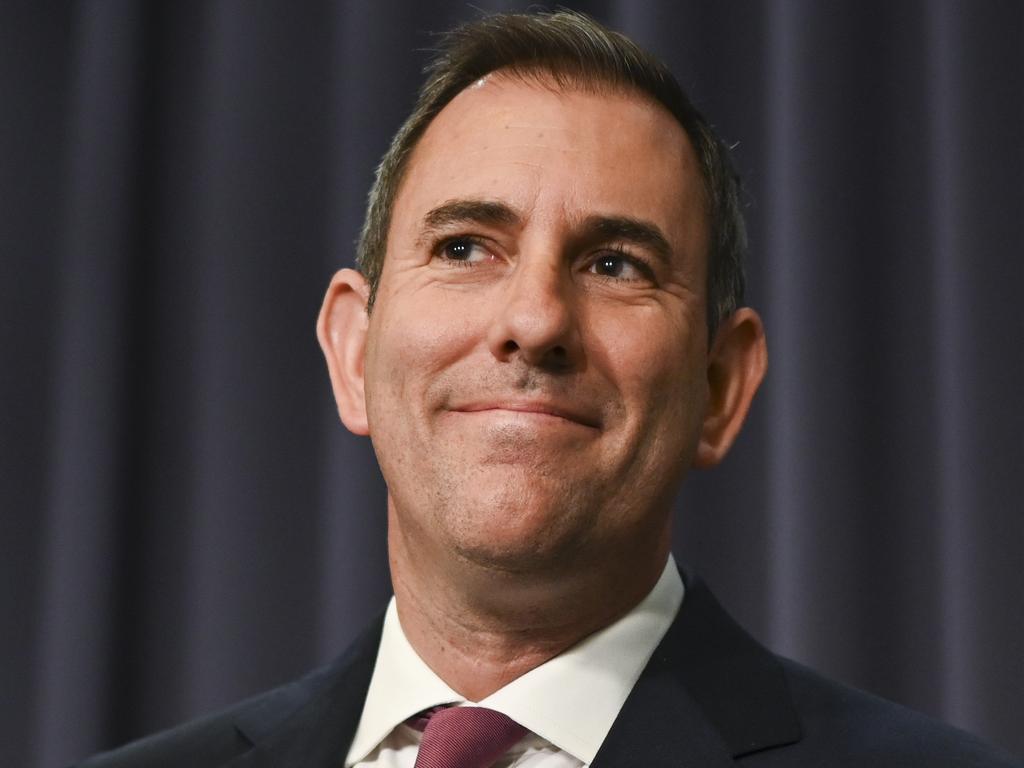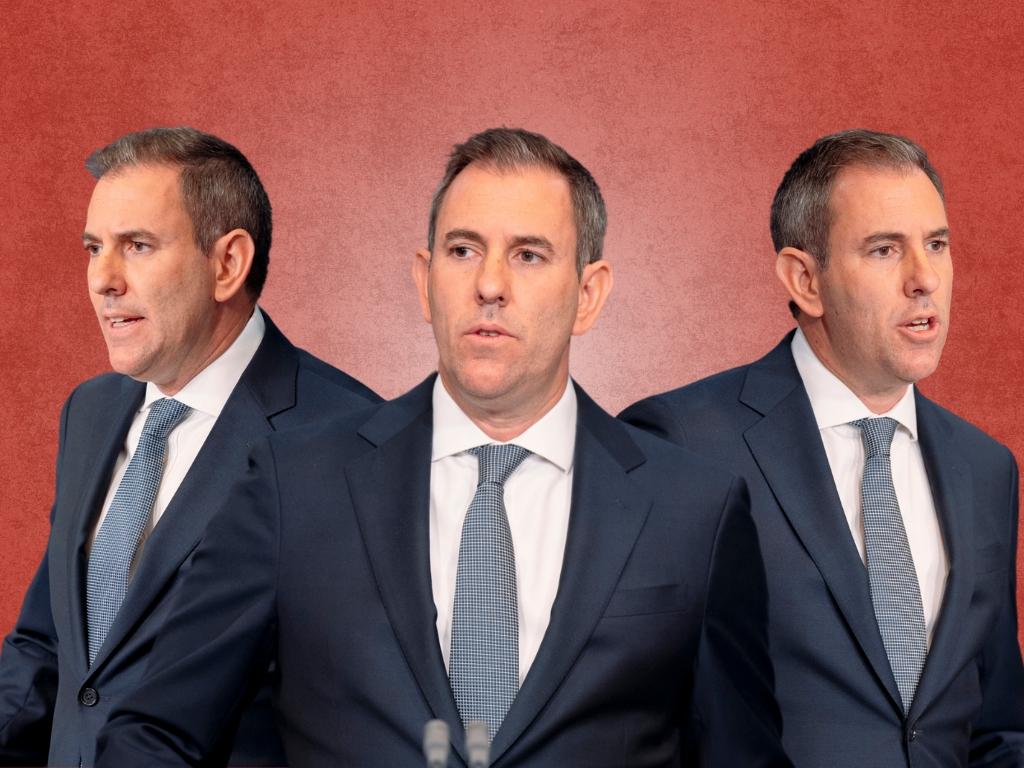Energy and resource exports set to tumble as economic headwinds mount
The value of Australian energy and resource exports will tumble, heightening pressure on the country’s $2.5 trillion economy and darkening Labor’s election prospects.
The value of Australia’s energy and resource exports will fall substantially over the next 18 months and a possible US-China trade war threatens to extend the pain, new government forecasts have shown in an prognosis that will intensify concerns about the state of the nation’s economy.
The outlook for Australia’s dominant industry, which employs hundreds of thousands of workers and is a source of billions of dollars in tax, clouds the country’s $2.5 trillion economy that is buckling under a cost-of-living crisis and 13 interest rate hikes.
Export projections released by the Office of the Chief Economist and Department of Industry and Resources show earnings are forecast to decline by about 10 per cent to $372bn in the 2024-25 financial year, down from $415bn a year earlier. Further falls in the following 12 months are expected, with export earnings forecast at $351bn, a reduction of more than 5.5 per cent.
That outlook could be overly optimistic should the Chinese economy continue to weaken and US president-elect Donald Trump deliver on his promise to impose a series of tariffs that could trigger a trade war.
Still, a separate report – the Resources and Energy Major Projects Report for 2024 – showed the industry was increasing investment. Some 455 major projects were under development in 2024, up from 421 in 2023.
Australia can ill afford to see a sustained slowdown from its dominant sector, and any sign of a contraction would fuel fears about the health of the economy.
Federal Resources Minister Madeleine King said the numbers illustrated the resilience of Australia’s industry amid a global slowdown.
“These two reports point to a positive outlook for Australia’s resources and energy sector, with more projects in development and more major projects moving to production,” Ms King said.

“Australia’s resources and energy exports are continuing to support our economy, to create wealth and provide thousands of highly skilled and well-paid jobs. Australia’s resources are critical to our prosperity, but also to helping the world reduce carbon emissions and reach net zero by 2050.”
The fortunes of Australia’s resources industry is likely to shape the country’s economy, already expected to be depressed by the economic slowdown and the Reserve Bank of Australia’s hawkish stance about interest rates.
The federal Labor government will be desperate for Australia to avoid a slowdown from its resource and energy industry.
Labor was on Wednesday was forced to unveil budget deficits over the next four years are forecast to increase by $21.8bn to $143.9bn, with the budget blowout blamed on “unavoidable spending”.
Already politically damaging, the mid-year economic and fiscal outlook slashed forecast mining export earnings by $100bn over the next four years in a reflection of softening demand for Australian product as competing jurisdictions ramp up production.
Lobby groups representing Australia’s biggest miners, such as Chamber of Minerals and Energy WA chief executive Rebecca Tomkinson, said: “Harmful policy is no longer just a handbrake on the growth of industry – for some commodities it is now an existential threat.”
Australia’s resource industry is already on heightened alert about the prosperity of China, Australia’s largest trading partner, which could depress demand for Australian commodities.
The Office of the Chief Economist and Department of Industry and Resources report acknowledges the risk, amplified by the prospect of a trade war between the world’s largest economies.
“China’s economic growth has been subdued in recent quarters, as weakness in the residential property market continues to weigh on Chinese activity and investment,” the report concludes.
A sharper downturn would be catastrophic for Labor as consumers are already hunkering down.
Financial markets expect the RBA will in 2025 move to loosen monetary policy but governor Michele Bullock has refused to be pressured into premature cuts until the board has sufficient confidence that inflation has returned sustainably to target levels of 2-3 per cent.
Inflation has fallen below 3 per cent for the first time since 2022, though the RBA insists temporary government spending – which has fuelled the MYEFO result – is artificially lowering the result.
Treasurer Jim Chalmers could extend the stimulus in an early budget before returning to the polls, though there is uncertainty about the capacity of the budget for measures such as an extension of the electricity bill relief.





To join the conversation, please log in. Don't have an account? Register
Join the conversation, you are commenting as Logout